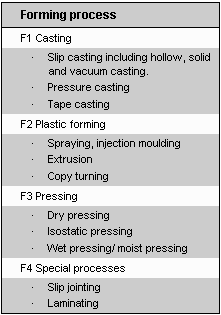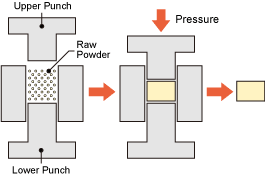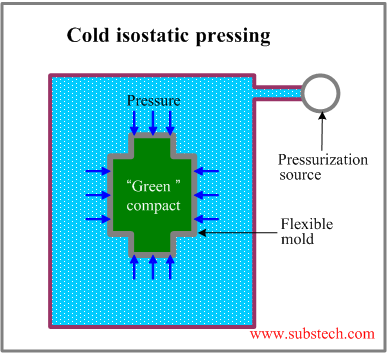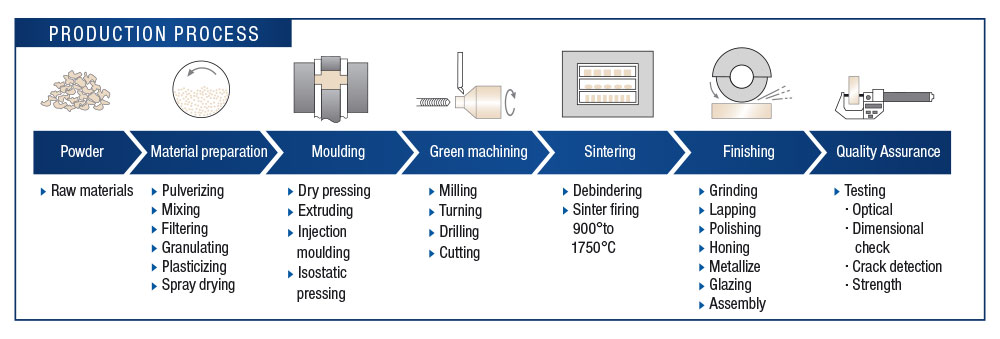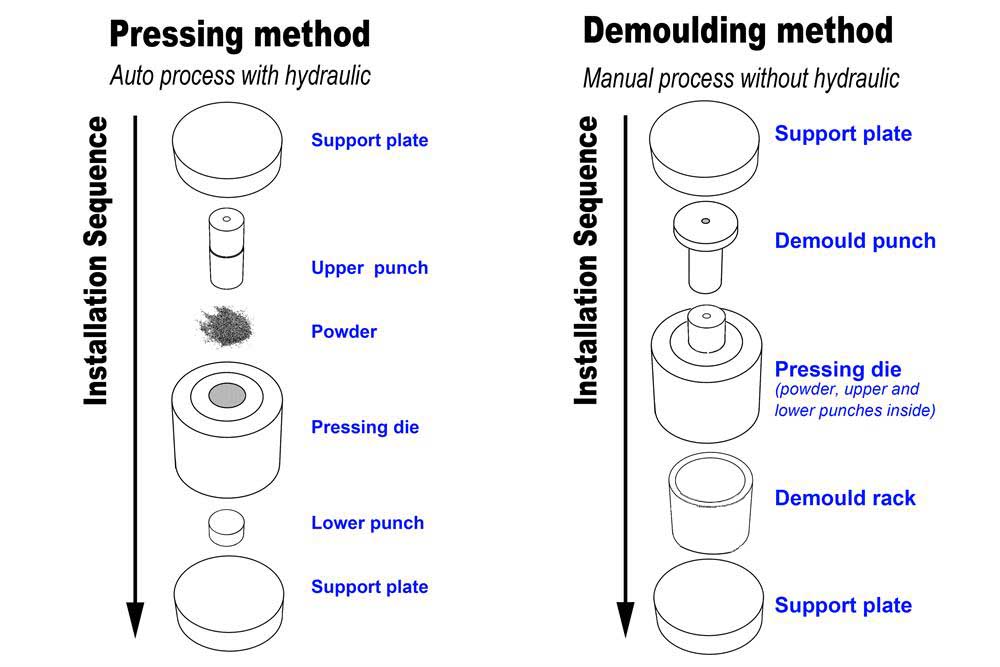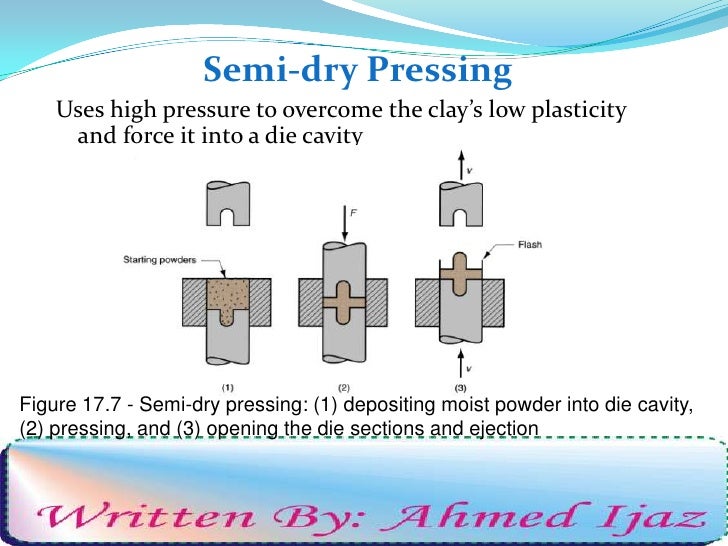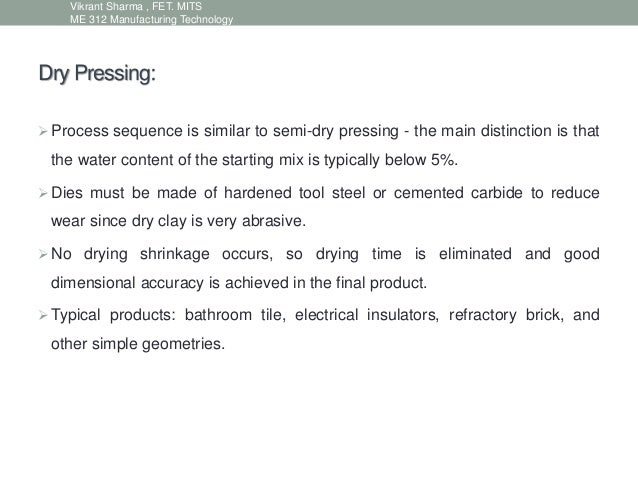The powder is granulated by adding a small amount of binder and then loaded into a mold and pressed on a press to make the particles close to each other in the mold and firmly joined by internal friction to form a blank of a certain shape.
Ceramic dry pressing process.
Other articles where dry press process is discussed.
1 drying pressing dry pressing refers to a method of forming a blank which is more commonly used in ceramic production.
The first step in the process is the preparation of the starting powder.
A pressing tool for axial dry pressing consists of a pressing die and upper and lower punches.
The punches can be divided into different segments depending on how complex the component is.
Compaction of ceramic powders is a forming technique for ceramics in which granular ceramic materials are made cohesive through mechanical densification either by hot or cold pressing.
Which is similar to the forming process of dry pressing except that the pressing is conducted at the firing temperature.
The application of pressure enhances the densification of the ceramic during firing.
Ceramic forming methods include throwing slip casting tape casting freeze casting injection molding dry pressing hot isostatic pressing hip and others.
The resulting green part must later be sintered in a kiln.
The drying process in the ceramic industry is the greatest energy consumer second to the firing process.
A minimum of water is added the material is placed in steel molds and pressures up to 1 500 pounds per square inch 10 000 kilopascals are applied.
Pressing is accomplished by placing the powder into a die and applying pressure to achieve compaction.
After reading the post you can control the whole manufacturing process better and fix the potential problems more effectively.
Free flowing can be achieved by granulation or spray drying.
Binders plasticizers they coat the powder and provide lubrication during pressing and temporary bond after pressing.
The compaction process permits an efficient production of parts to close tolerances with low drying shrinkage.
Required ceramic forming techniques.
A fill shoe is used to feed the pressing granulate into the mold.
The process is also known as dry pressing to emphasize the point that the powders themselves are dry there may be a small amount of moisture in some powders but compared to the processes described in chapter 6 these powders are indeed dry.
Premixed with suitable binder and lubricant and pre consolidated so that it is free flowing.
